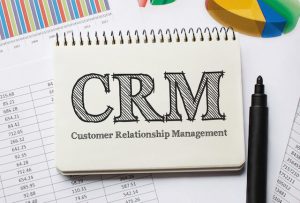
A CRM (Customer Relationship Management) system is no longer just another piece of software that businesses include in their day-to-day operations but has fast become a core aspect of many business strategies.
With the ever-increasing importance afforded to customers, businesses are bound to keep a perennial spotlight on their requirements to retain their loyalty and ensure an edge over their competitors.
That said, CRM operations have a considerably high probability of failure. A custom CRM development strategy that has the customer at its core has a significant potential to not only succeed, but also drive a business and make it an unparalleled success. A less than ideal implementation strategy could lead to various obstacles that could severely impact operations and leave business owners scratching their heads to find a solution.
It is therefore imperative to first choose the right vendor for your CRM development services that offers solutions specific to your business needs and ensure that all important aspects are considered before implementing a new CRM or while migrating from an old one.
1. Determine the number of users:
If you have a team of 4-5 members, it does not make sense to opt for CRMs that require a minimum of 10 users. An individual user has personalized access to the CRM platform and most platforms allow only one user with specific credentials.
2. Understand your budget:
Finalizing a budget is an important step as this provides a threshold for your operations. With many CRMs offering varied prices for several features, you must understand which features are essential to your budget and identify one that provides them within your stated budget.
3. Involve team members:
The first step to implement this is to identify the teams / departments within the organization that will use the CRM extensively. This is where custom CRM development becomes very critical. Involve the team members who are going to utilize the CRM right from the design phases. Their involvement will not only ensure a seamless transition but could also provide you with insights on the important aspects that the CRM development services will cover.
4. Onsite or cloud:
Determine whether you would like to host your CRM on the cloud or on site. Cloud solutions have fast become highly efficient and affordable, while on premise solutions also serve certain benefits. Generally, if you have an in-house IT team, you can opt for an on-site solution, otherwise cloud could be the most logical choice.
5. CRM Integrations:
Understand the other systems that already serve your business operations well that you would like to integrate with your CRM application development. These could be anything from email services (to ensure alerts for task tracking and updates), marketing systems (to automate marketing processes) or accounting (to generate invoices and send them to customers).
6. Data migration:
There have been many instances of loss of data during migration or difficulty in accessing information on platforms that have been migrated to. CRMs with drag and drop facilities enable easy data migration and assimilation, and lead to a seamless transition. It is important to keep in mind that data migration could make up a significant part of the upfront cost of a CRM.
7. Make your platform scalable:
It is imperative to consider the scope of your business and have a sense of scale before you decide upon the ideal CRM platform. Businesses must think of a three or five period and understand their long-term operational requirements before committing to a CRM. For example, a pay-as-you-go option would suit the needs of a start-up perfectly well and would help scale operations as and when require.
8. Do your research:
See what different platforms offer, their features, payment structures and whether they provide enough flexibility when it comes to upgrading or downgrading your requirements.
9. Share updates:
Keep the team updated about the latest developments. This will ensure that everyone is on the same page while also keeping communication channels open for any latest requirements that may need to be included.
10. Track progress:
Businesses must know how a CRM has benefited their operations. Some factors such as increased lead generation, closure of support tasks and increased sales would benchmark the progress of your strategies and justify the investment.
If you want to know more about how CRM can improve your business performance, you can contact the experts at Smart Sight Innovations.














